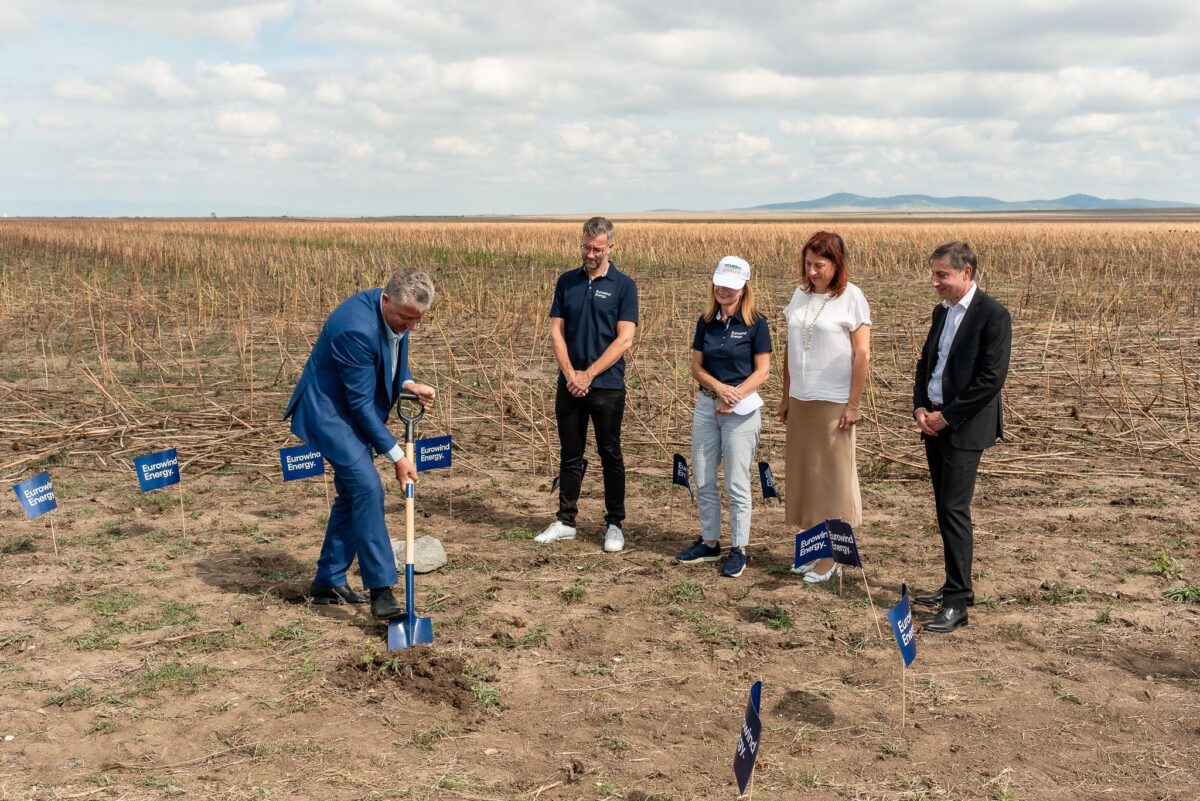Konstantin Nenov, director of Bulgaria-based investment firm Renalfa AD, told pv magazine that construction has started on Bulgaria’s first hybrid wind-solar energy project.
Called Tenevo Solar, the project is planned to have a solar capacity of 237.58 MW, a wind capacity of 237 MW and a storage capacity of 250 MW-500 MWh.
The location of the 200 ha plant in Bulgaria’s east, Tenevo in the Yambol region, represents a shift away from fossil fuels, he said.
“The project is located in Tenevo, which is close to one of the biggest coal mining areas in the country,” Nenov said, referring to Bulgaria’s largest lignite mine, Marista East, which is located 191 km south of the project. “It's a very good example of transition.”
The park’s battery operations should start by 2026 latest. The developer will use n-type solar modules and bifacial trackers for the project.
Managed by Renalfa AD’s subsidiary group, Solarpro, the project is a joint investment between Denmark-headquartered Eurowind Energy, a renewable energy project company, and Austria-headquartered Renalfa IPP, an independent power producer. Both companies are participating in a joint venture titled EURA UPP.
Although Nenov remained tight-lipped around a power purchase agreement (PPA), he said, “We are currently considering a merchant” and the consortium was “prohibited” from entering into PPAs at this point.
The consortium selected Tenevo as the location for the plant as received optimal amounts of solar irradiation and wind, Nenov said.
Speaking more broadly about Bulgaria, he said despite there not being any current subsidies for solar, regulations were “developing” and the country was “favorable” to renewable projects. Large-scale solar PV arrays in development include the 227 MW solar project in Silistra, northeastern Bulgaria, managed by Rezolv Energy, and the 124 MW solar Verila solar project on Verila Mountain in western Bulgaria, managed by Sunotec.
In 2022 Bulgaria's Electricity System Operator (ESO) announced the country was in “urgent” need of grid expansion to support the country's burgeoning electricity transmission system. Nenov said while there was still work to be done for grid access and market liberalization, “We see good signs of improvement, and that's why a lot of investors are looking current now to Bulgarian markets.”
In 2021 the Bulgarian government committed to phasing out coal by 2038, and in May 2023 launched a scheme aimed at ramping up installations of solar water heating systems, rooftop PV arrays and batteries.
Bulgaria recorded 1948 MW solar PV installed capacity at the end of 2022, according to recent statistics published by the International Renewable Energy Agency (IRENA).
This content is protected by copyright and may not be reused. If you want to cooperate with us and would like to reuse some of our content, please contact: editors@pv-magazine.com.



1 comment
By submitting this form you agree to pv magazine using your data for the purposes of publishing your comment.
Your personal data will only be disclosed or otherwise transmitted to third parties for the purposes of spam filtering or if this is necessary for technical maintenance of the website. Any other transfer to third parties will not take place unless this is justified on the basis of applicable data protection regulations or if pv magazine is legally obliged to do so.
You may revoke this consent at any time with effect for the future, in which case your personal data will be deleted immediately. Otherwise, your data will be deleted if pv magazine has processed your request or the purpose of data storage is fulfilled.
Further information on data privacy can be found in our Data Protection Policy.